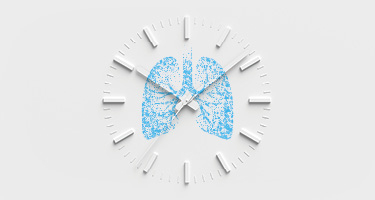Being diagnosed with a major medical condition or sustaining a traumatic injury can result in spending significant time away from your job. Approximately 24% of working-age adults had at least one diagnosed disability in 2022, meaning this situation is more common than many think. Naturally, questions arise regarding how you will survive financially.
Long-term disability (LTD) benefits are designed to provide a lifeline when you need it most. They offer some financial breathing space while you concentrate on your recovery. But what are these benefits, how do you qualify, and how long can you claim them?
These are the questions lawyers working on personal injury cases and disability claims often receive. Here’s what you must know.
What are Long-Term Disability Benefits?
Many Canadian employers choose to provide LTD insurance to their workers. If you are insured, your insurance company will make regular financial payments if a qualifying condition or injury prevents you from working.
Although employers may provide them as part of your benefits package, not all do. In this case, workers can purchase LTD separately and pay their own premiums. Like any insurance policy, benefits and coverage vary between providers. Among Canadian insurers, most plans provide a percentage of your pre-disability income.
These payments enable you to cover lost wages while maintaining a suitable standard of living. This enables workers to concentrate on their recovery without worrying about paying the bills. According to one study, as many as 12% of Canadian workers are off work due to an injury or other medical condition and receive some form of payment, including LTD benefits and workers’ compensation.
Note that LTD benefits are considered taxable income if an employer covers all or part of the premiums. If you purchase and pay for your own policy, LTD benefit payments are non-taxable.
Long-Term Disability (LTD) vs. Short-Term Disability (STD): What’s the Difference?
Injured and sick workers may qualify for LTD and STD benefits payments. These two distinct insurance policies help you replace your income if you cannot work. But how do they differ?
Short-Term Disability (STD) Insurance
STD insurance is temporary. The standard policy provides payments for six months after an injury or illness occurs. These benefits may be included in your employer’s benefits package but can also be purchased individually.
Your insurance may also cover other recovery-related expenses, including medical and rehab. Like LTD benefits, payment amounts are defined by a percentage of your pre-disability salary.
Long-Term Disability (LTD) Insurance
Long-term disability is designed to replace your income for extended periods. Most workers use it if they have a long-term injury they cannot recover from within the timeframe of their STD policy.
LTD policies can last for a few years, but they can also provide income replacement until you reach the Canadian state retirement age of 65.
Are You Eligible for Long-Term Disability Benefits?
Both STD and LTD benefits are only paid if you meet the policy’s definition of “disability.” Again, this definition varies from policy to policy. Generally, it requires that you cannot perform the critical duties of your job or any other occupation for which you are also similarly qualified.
However, establishing eligibility is one of people's most significant sticking points. Where should you begin? Firstly, review your insurance policy. Your policy outlines what qualifies as a disability and any eligibility criteria. If you receive LTD benefits through your employer, they may also have specific criteria attached. Examples include:
- Working for your current employer for a minimum period.
- Being classified as a full-time employee.
- Contributing to the plan’s cost, where relevant.
In many cases, LTD benefits only kick in when you’ve exhausted other benefit options, such as STD benefits and standard sick leave. Confirm this with your employer or insurer to determine your position on this issue.
What Steps Do You Need to Take to Receive Long-Term Disability Benefits?
Making a claim involves contacting your insurer (or employer). Depending on your circumstances, you may need to do the following:
- Provide copies of medical documentation.
- File your claim directly with your insurance provider.
- Ensure your elimination period has ended.
A policy’s elimination period is the time that must elapse before you can apply for LTD benefits. The standard elimination period is 30 days from when you were injured or became ill. However, other policies may mandate elimination periods of six months or longer. Consult your employer or policy for more information.
If your claim is approved, you’ll receive a percentage of your pre-disability income every month. Most LTD policies provide 60-70% of your gross monthly earnings.
What Medical Conditions Qualify for Long-Term Disability Benefits?
Any condition, injury, or illness that prevents you from returning to the workplace could make you eligible for LTD benefits. Technically speaking, hundreds of conditions could qualify, but the most common include:
- Chronic Fatigue Syndrome
- Traumatic brain injury
- Parkinson’s disease
- Cancer
- Arthritis
- Stroke
- Chronic pain
- Anxiety
- Depression
- Post-Traumatic Stress Disorder (PTSD)
- Fibromyalgia
- Spinal cord injuries
Note that many policies contain limitations that could disqualify you from LTD benefits. This is why you must understand your policy’s terms and conditions before claiming.
How Long Can You Claim Long-Term Disability Benefits?
Lawyers involved in claims often receive questions regarding how long LTD benefits can last. Again, the answer is it depends on the policy. Some policies have hard cut-off points for benefit payments, but more comprehensive policies may provide coverage until you reach the state retirement age.
One of the most common conditions is LTD policies will provide two years of benefits if you cannot perform your usual job. After these two years, you will only receive benefits if you cannot work at all. Look for language like this in your policy before claiming.
Generally, benefits last until you fully recover and can return to the workplace. Alternatively, a policy may stop paying if you reach the maximum benefit period.
Can a Lawyer Help with Long-Term Disability Claims?
Suffering from a significant illness or injury may make claiming benefits challenging. The issue is complicated, and problems can manifest along the way. However, long-term disability lawyers can help.
Najma M. Rashid of Ottawa law firm Yegendorf Rashid Personal Injury Lawyers cautions: “An important dynamic to remember is that the insurance companies that issue long-term disability policies are for-profit businesses, and paying out long-term disability benefits cuts into their bottom line.”
“Insurance providers are for-profit businesses, so they will scrutinize every aspect of any claim. Any claims they approve cuts into their bottom lines, meaning claims timelines can be long.”
Even people who have paid their premiums for years can find the claims process challenging. It’s not uncommon for claims to become stalled or outright denied for the most frivolous reasons. If you have no experience making a claim, you may wrongly believe you are ineligible for LTD benefits.
Managing the claims process while recovering and paying the bills can feel impossible. And this is why hiring a law firm like Yegendorf Rashid is so valuable. They can pursue your claim and ensure you receive the LTD benefits you deserve.
Navigating Long-Term Disability Benefits the Right Way
Finding yourself unable to work due to an illness or injury can be soul-destroying. The last thing you need is to be dipping into your savings or agonizing over how to pay the bills. Hiring a lawyer makes sense if you need help accelerating your claim and holding your insurer to account.
Your lawyer will review your case and compare it to the terms of your policy. With proper legal representation, you can ensure your claim is processed correctly, and your benefits are not unfairly denied.
The first step is to contact a skilled long-term disability lawyer to begin claiming your LTD benefits.






























